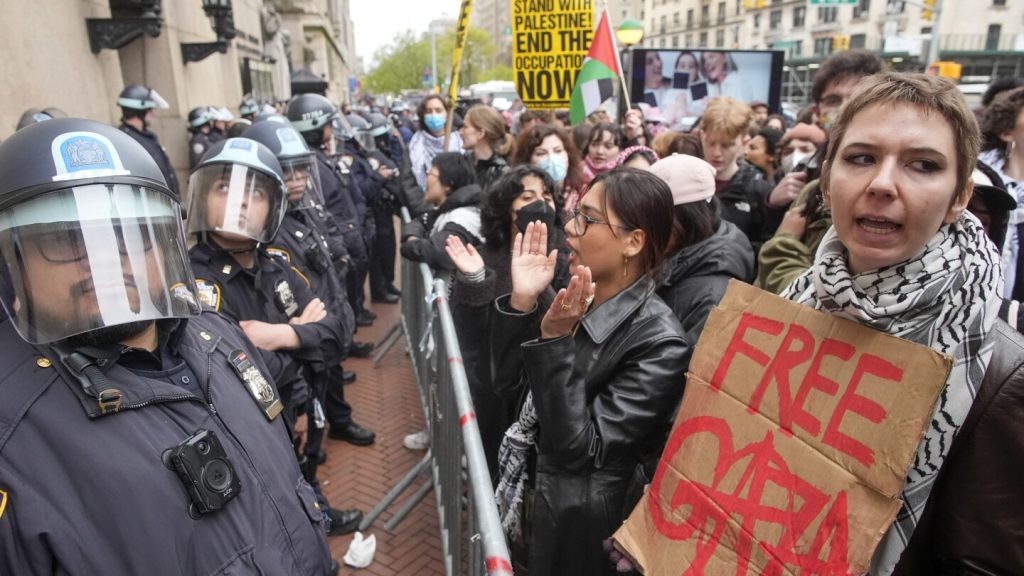Protests at universities across the United States have escalated in response to the Israel-Hamas war, with some colleges encouraging students to attend classes remotely and dozens facing charges after setting up tents on campuses. The tensions have been brewing for months but came to a head after more than 100 pro-Palestinian demonstrators were arrested at Columbia University. The protests have spread nationwide, leading to arrests at New York University, Yale University, and other institutions. As a result, many universities are switching to hybrid learning for the rest of the semester, with only a few weeks left before classes end.
Police arrested protesters at NYU and Yale University, where demonstrators refused to leave an encampment on campus. At the University of Michigan and the University of Minnesota, similar protests were met with arrests as authorities tried to clear the encampments that had been set up. On the West Coast, California State Polytechnic University, Humboldt, closed its campus after demonstrators occupied a building, opting to conduct classes remotely. Colleges and universities are struggling to balance safety with free speech rights and are now taking a more heavy-handed approach to discipline.
The protests have pitted students against each other, with pro-Palestinian students calling for schools to condemn Israel’s actions in Gaza and divest from companies that sell weapons to Israel. Some Jewish students have expressed concerns that the criticism of Israel has veered into anti-Semitism. Former President Donald Trump blamed President Joe Biden for the turmoil on college campuses, calling it a disgrace to the country. Biden, in response to questions about the protests, condemned anti-Semitism but also expressed understanding for those who support Palestinians.
Columbia University President Minouche Shafik expressed sadness over the situation on campus, where tensions have been running high. The university has a history of protest, with notable events in 1968 when students occupied campus buildings to protest racism and the Vietnam War. Some donors, such as Robert Kraft, have suspended donations to the university, citing concerns about the safety of students and staff. The protests have been sparked by the deadly attack by Hamas on southern Israel, which led to a violent conflict resulting in casualties on both sides.
The Israel-Hamas war has led to a humanitarian crisis in Gaza, with thousands of Palestinians killed, including many civilians and children. The conflict has sparked international condemnation and calls for a ceasefire to prevent further loss of life. As the protests continue at universities across the United States, authorities are working to maintain order while upholding the right to free speech. The situation remains volatile, with tensions running high and students divided over the appropriate response to the conflict in the Middle East. The coming days will be critical in determining how universities address the protests and maintain a safe and inclusive environment for all students.


